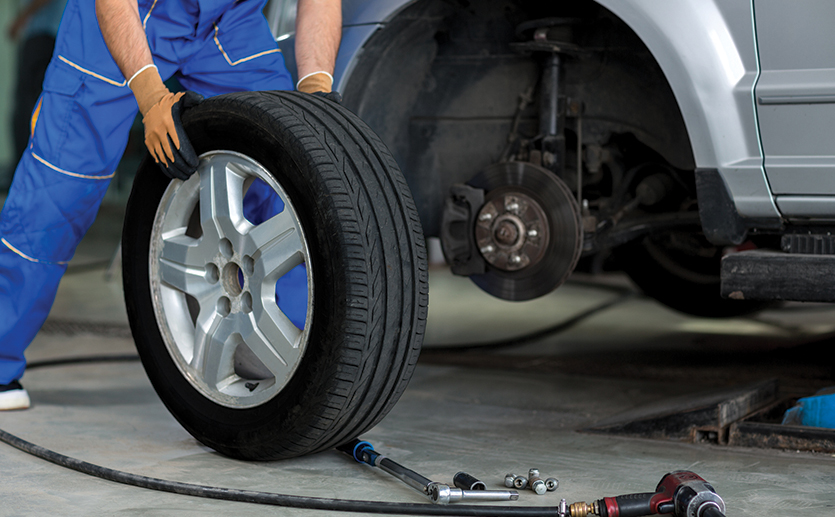Boost Your Drive: Top-Notch GMC Tires Service at Morris Tires
Boost Your Drive: Top-Notch GMC Tires Service at Morris Tires
Blog Article
Tire Solution: The Impact of Climate Condition
When it involves guaranteeing optimum performance and safety and security when traveling, recognizing the effect of climate condition on tire solution is essential. From scorching heat to icy roads, each weather component can significantly influence tire capability and total driving experience. By delving into the effects of differing weather condition conditions on tires, vehicle drivers can gain valuable insights that might boost their lorry's efficiency and longevity. In this discussion, we will certainly discover the intricate relationship in between weather conditions and tire service, dropping light on the relevance of weather-specific tire upkeep practices and factors to consider.
Heat and Tire Performance
When subjected to high temperatures, tires experience modifications in performance that can considerably affect vehicle safety and security and handling. The warm produced from long term driving or hot weather conditions triggers the tire rubber to soften, leading to decreased walk life and enhanced wear.

Winter Impacts
Cold climate problems can have a significant effect on tire performance and security. In cold climate, tires may likewise shed air pressure more quickly, which can influence handling and gas efficiency.
To reduce the results of cold weather on tires, it is crucial to regularly check tire pressure and inflate them to the producer's recommended degrees. Utilizing winter or all-season tires developed for cold weather problems can additionally improve grip and grip on icy or snowy roads. Appropriate tire upkeep, consisting of normal inspections for wear and damage, ends up being a lot more vital during chillier months to guarantee optimum performance and security.
Rainy Issues Influence
Tires with damaged footsteps are more prone to hydroplaning, where a layer of water constructs up between the road and the tire surface area, leading to loss of traction. To fight this, drivers need to routinely inspect their tires for ample walk deepness and consider spending in tires especially developed for damp problems.
Additionally, rainy climate can likewise reduce visibility, making it challenging for chauffeurs to see the road ahead clearly (GMC Tire Service). In such problems, it is vital to adjust driving rates as necessary and maintain Related Site a safe complying with distance to permit unexpected stops. Correctly inflated tires can likewise assist in preserving control on damp roadways by providing far better handling and hold
Snow and Tire Security
Snow-covered roadways present unique challenges for motorists, highlighting the importance of appropriate tire option and upkeep. When driving in snowy conditions, having the appropriate tires can make a significant difference in security and efficiency. Winter season tires are developed with special rubber compounds and walk patterns to offer much better traction on snow and ice compared to all-season tires. The deeper treads and sipes of winter months tires help grip the road better, minimizing the danger of sliding and slipping.

It is important to follow manufacturer guidelines when using and mounting tire chains to avoid damages to the tires and automobile. By choosing the appropriate tires, keeping correct inflation, and thinking about added traction help like tire chains, motorists can enhance their security when browsing snow-covered roadways.
Weather-Related Tire Maintenance
Weather-related tire upkeep incorporates a variety of methods aimed at guaranteeing optimum tire feature and long life in different weather scenarios. One key element of weather-related tire maintenance is tire pressure regulation. Checking tire tread frequently and changing official statement tires when step wear reaches a specific deepness is important for keeping traction and security in unfavorable weather.
Verdict
In final thought, weather condition conditions have a considerable impact on tire efficiency and safety. From warmth affecting tire pressure and use to chilly weather decreasing traction, it is important to consider the weather when Read Full Report keeping and utilizing tires.
In this conversation, we will discover the detailed relationship between weather conditions and tire service, losing light on the significance of weather-specific tire upkeep techniques and considerations.

Report this page